Keynotes
Craig Vear
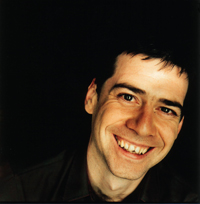 Craig Vear is Professor of Digital Performance and Music at De Montfort University, UK, where he was recently awarded a
European Research Council project. Drawing on findings from over a decade’s worth of practice-based experimentation in the field, the author builds a framework for understanding how digital scores create meaning. This book provides a solid foundation for any student/artist/teacher wishing to explore the relationship between notation and technology.
Craig Vear is Professor of Digital Performance and Music at De Montfort University, UK, where he was recently awarded a
European Research Council project. Drawing on findings from over a decade’s worth of practice-based experimentation in the field, the author builds a framework for understanding how digital scores create meaning. This book provides a solid foundation for any student/artist/teacher wishing to explore the relationship between notation and technology.
In the author's own words:
 Digital technology is transforming the musical score as a broad array of innovative score systems have become available to musicians. From the mediation of printed page, to animated and graphical scores, to artificial intelligence-based options, digital scoring affects the musical process by opening up new possibilities for dynamic interaction between the performer and the music, changing how we understand the boundaries between composition, score, improvisation and performance. The Digital Score: Musicianship, Creativity and Innovation offers a guide into this new landscape, reflecting on what these changes mean for music-making from both theoretical and applied perspectives.
Digital technology is transforming the musical score as a broad array of innovative score systems have become available to musicians. From the mediation of printed page, to animated and graphical scores, to artificial intelligence-based options, digital scoring affects the musical process by opening up new possibilities for dynamic interaction between the performer and the music, changing how we understand the boundaries between composition, score, improvisation and performance. The Digital Score: Musicianship, Creativity and Innovation offers a guide into this new landscape, reflecting on what these changes mean for music-making from both theoretical and applied perspectives.
EXPANDING THE NOTION OF THE SCORE
Provincializing Notation Technologies in a Transtraditional Perspective, A Keynote Dialogue between Terri Hron and Sandeep Bhagwati
Abstract: The TENOR Network (which the two speakers lead as coordinator and director, respectively) was founded in 2018 by 15 institutions in Canada, US, UK, Australia, Germany and France. It is dedicated to developing, exploring, charting, categorizing, but also to critically examining communication technologies in sonic practice - and their evolution in the live arts. One of its missions was to actively search for other researchers and artists engaged in similar concerns working in countries beyond the regions mentioned above - in Asia, Africa, Latin America. It soon became clear that this mission would be severely impeded by the strong bias of current score technologies towards western common notation and towards graphic notations derived from a cartesian, flat surface, instructional bias. Many non-eurological, global art music traditions, in contrast, work with systems of notation and representation that favour other parameters than eurological notations, use notation in different ways – or, indeed, 'notate' in other media than the written page. A score thus might appear as a variety of existences - from an object to a social context. Some of these alternative ways of notating and representing music have inspired eurological composers in their notation research and experimentation, thus giving rise to a plethora of culturally hybrid notation systems. During the TENOR conference 2019 in Melbourne, the speakers organized a panel that showcased such non-Western and hybrid perspectives. Since then, Terri Hron has consulted and interviewed a wide diversity of non-eurological or hybrid sound artists to investigate how the focus of the TENOR community could become less myopic. What kind of investment (personal, structural, financial) would be needed to connect with non-eurological score-makers and users? How could definitions of “notation”, “representation” and “technology” be expanded or reconceived to bring in more diverse voices and paradigms? How could the TENOR community provincialize scoring and notation in order to open up more artistic potential for technological scores? These are not just efforts at inclusion, they also acknowledge the huge potential for using scores productively in music practices that have so far not engaged with notation. This keynote in dialogue is partly a report on this 3 year process, and partly offers some reflections on how questioning its inherent bias could enhance and invigorate the TENOR community. It takes inspiration from Dipesh Chakrabarty’s invitation to provincialize Europe by questioning eurological assumptions and categories - and how such a shift might lead to a renewal of TENOR research-creation for and from its present margins.Sandeep Bhagwati
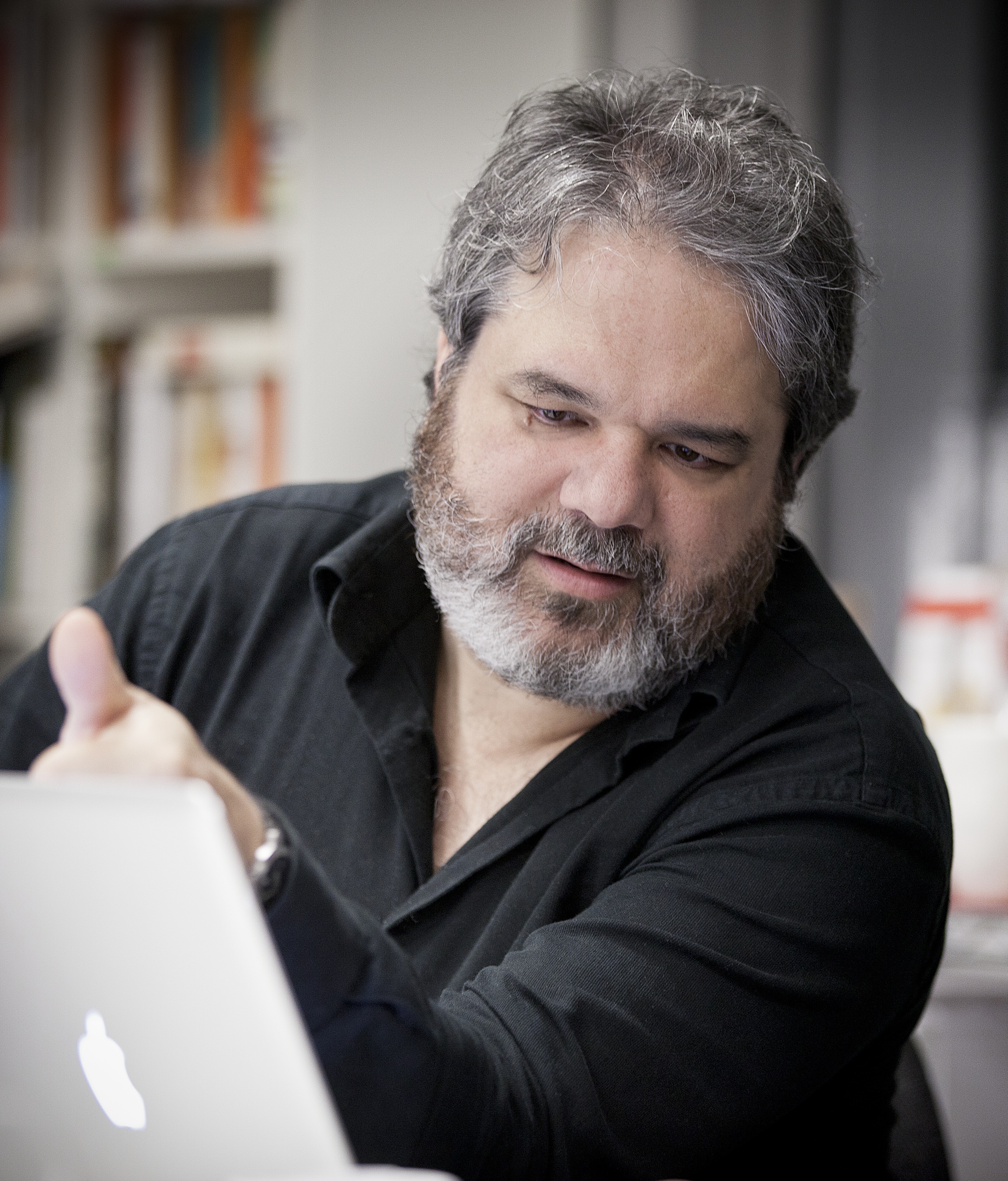 Sandeep Bhagwati is a a composer, researcher, poet, theatre maker, installation artist, and conductor, born in India, a citizen of Germany now living in Montréal, Canada.
In his work, he likes to ask himself questions that he cannot answer, set himself tasks that stymie him, and to break with practices that no one thinks are broken. In order to further foster and enhance his ignorance, he founded, in 2006, a research-creation lab at Concordia University, the matralab, where he and his team work on computer-improvisation, interactive scores, invisible bodysuit scores and creative research into inter-traditional music and theater forms, but also on the theoretical-artistic exploration of comprovisational technique, inter-traditional aesthetics and world-conscious art practices such as political performance, environmental sound art or responsive creation.
Sandeep Bhagwati is a a composer, researcher, poet, theatre maker, installation artist, and conductor, born in India, a citizen of Germany now living in Montréal, Canada.
In his work, he likes to ask himself questions that he cannot answer, set himself tasks that stymie him, and to break with practices that no one thinks are broken. In order to further foster and enhance his ignorance, he founded, in 2006, a research-creation lab at Concordia University, the matralab, where he and his team work on computer-improvisation, interactive scores, invisible bodysuit scores and creative research into inter-traditional music and theater forms, but also on the theoretical-artistic exploration of comprovisational technique, inter-traditional aesthetics and world-conscious art practices such as political performance, environmental sound art or responsive creation.
Terri Hron
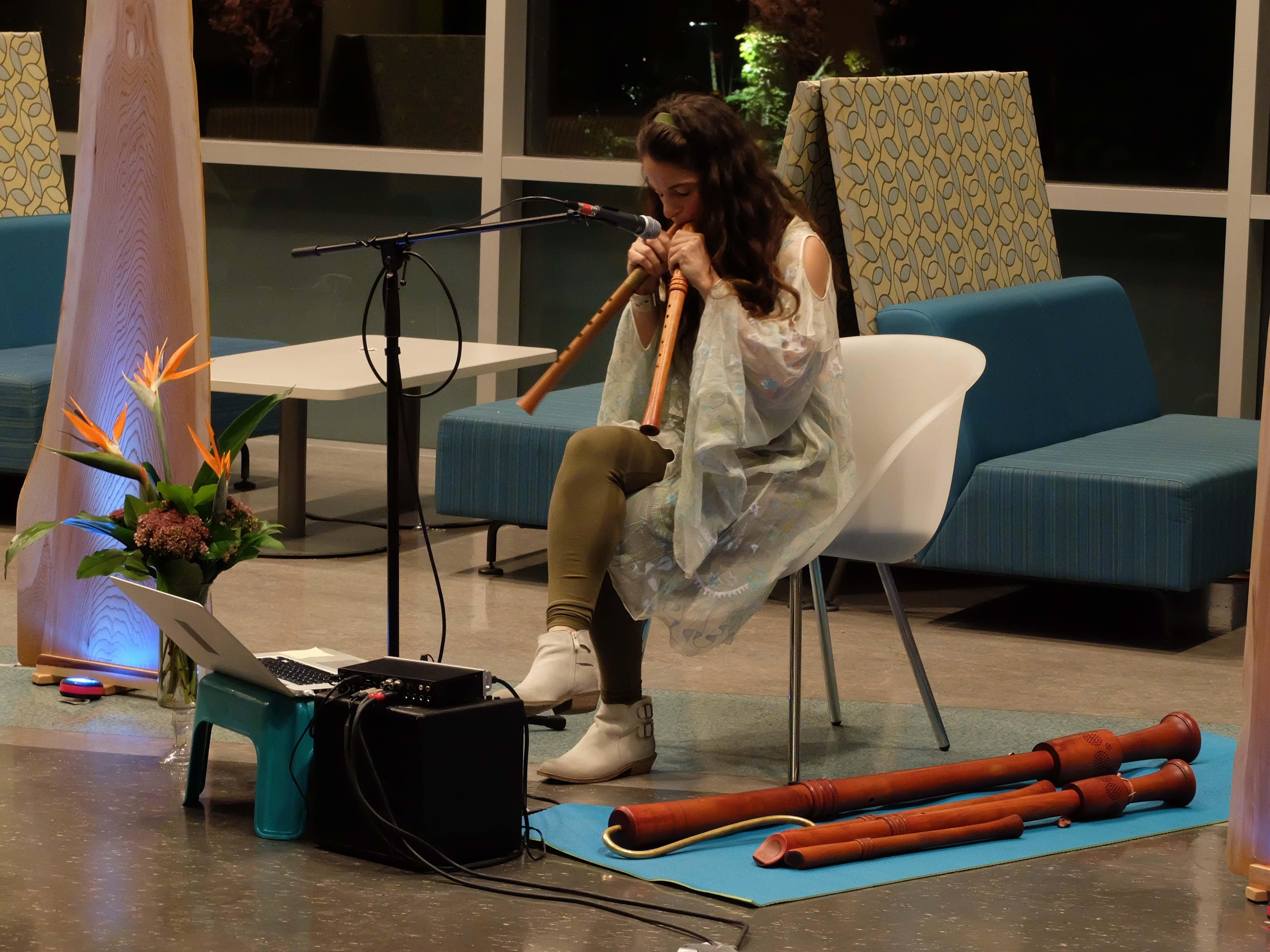 Terri Hron is a musician, a performer and a multimedia artist. Her work explores historical performance practice, field recording, invented ceramic instruments and videoscores. She often works in close collaboration with others. Besides composing and performing works for and with others, she produces performances, gatherings and events. Terri studied musicology and art history at the University of Alberta, historical and contemporary performance at the Conservatorium van Amsterdam and electroacoustic composition at the Université de Montréal. Her research focuses on collaborative practice and scoring in multimedia performance art. She was a Visiting Scholar at Wesleyan University before taking her current position as Executive Director of the Canadian New Music Network, where she has developed programs focusing on pluralism and sustainability. She was the coordinator of the Technologies for Notation and Representation Network at matralab, Concordia University from 2017-2020. Recent collaborators include Monty Adkins, Paula Matthusen, Helen Pridmore and Jennifer Beattie (Out Loud), Katelyn Clark, Jennifer Thiessen and Myriam Boucher (Medusa Selfie), François Houle, Giorgio Magnanensi, Susanne Fröhlich, and Charlotte Hug. Latest commissions include Ensemble Paramirabó, GreyWing Ensemble, Dead of Night, Splinter Reeds and Ensemble Supermusique.
Terri Hron is a musician, a performer and a multimedia artist. Her work explores historical performance practice, field recording, invented ceramic instruments and videoscores. She often works in close collaboration with others. Besides composing and performing works for and with others, she produces performances, gatherings and events. Terri studied musicology and art history at the University of Alberta, historical and contemporary performance at the Conservatorium van Amsterdam and electroacoustic composition at the Université de Montréal. Her research focuses on collaborative practice and scoring in multimedia performance art. She was a Visiting Scholar at Wesleyan University before taking her current position as Executive Director of the Canadian New Music Network, where she has developed programs focusing on pluralism and sustainability. She was the coordinator of the Technologies for Notation and Representation Network at matralab, Concordia University from 2017-2020. Recent collaborators include Monty Adkins, Paula Matthusen, Helen Pridmore and Jennifer Beattie (Out Loud), Katelyn Clark, Jennifer Thiessen and Myriam Boucher (Medusa Selfie), François Houle, Giorgio Magnanensi, Susanne Fröhlich, and Charlotte Hug. Latest commissions include Ensemble Paramirabó, GreyWing Ensemble, Dead of Night, Splinter Reeds and Ensemble Supermusique.
Comprovisation with O'Max
Raphael Imbert and Benjamin Levy have a long experience with co-creation with intelligent systems. In this keynote, based on the O'Max IRCAM technology, they will share thoughts on how humans and machines may compovise, listening to each other and responding in realtime.Raphael Imbert
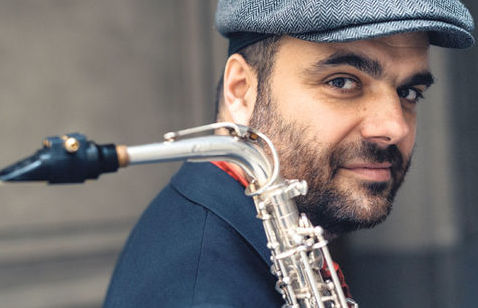 Raphaël Imbert is a French jazz saxophonist, conductor, composer, and music teacher. He is founder and artistic director of the Nine Spirit Company, and currently director of the Conservatory with regional influence of Marseille.
In 2010, Raphaël Imbert became a member of the “Improtech” research group, which studies the relationship between improvisation and new technologies, on behalf of the National Research Agency. Raphaël Imbert's project, Omax at Lomax, is a research mission in the United States on the ground of traditional musical roots, musical knowledge relating to orality, and their link with improvisation and new technologies. OMax is the name of a software developed at IRCAM, which analyzes in real time the playing of a musician, his melodic and sound articulations, which constructs a “model”, and restores in return his own improvisations. Lomax refers to Alan Lomax, a famous ethnomusicologist specializing in traditional American music.
This project allows Raphaël Imbert to meet during several trips to the southern United States in 2010 and 2011 local musicians with deep musical roots, to question them, to play and improvise with them, during unprecedented artistic encounters.
Raphaël Imbert is a French jazz saxophonist, conductor, composer, and music teacher. He is founder and artistic director of the Nine Spirit Company, and currently director of the Conservatory with regional influence of Marseille.
In 2010, Raphaël Imbert became a member of the “Improtech” research group, which studies the relationship between improvisation and new technologies, on behalf of the National Research Agency. Raphaël Imbert's project, Omax at Lomax, is a research mission in the United States on the ground of traditional musical roots, musical knowledge relating to orality, and their link with improvisation and new technologies. OMax is the name of a software developed at IRCAM, which analyzes in real time the playing of a musician, his melodic and sound articulations, which constructs a “model”, and restores in return his own improvisations. Lomax refers to Alan Lomax, a famous ethnomusicologist specializing in traditional American music.
This project allows Raphaël Imbert to meet during several trips to the southern United States in 2010 and 2011 local musicians with deep musical roots, to question them, to play and improvise with them, during unprecedented artistic encounters.
Benjamin Lévy
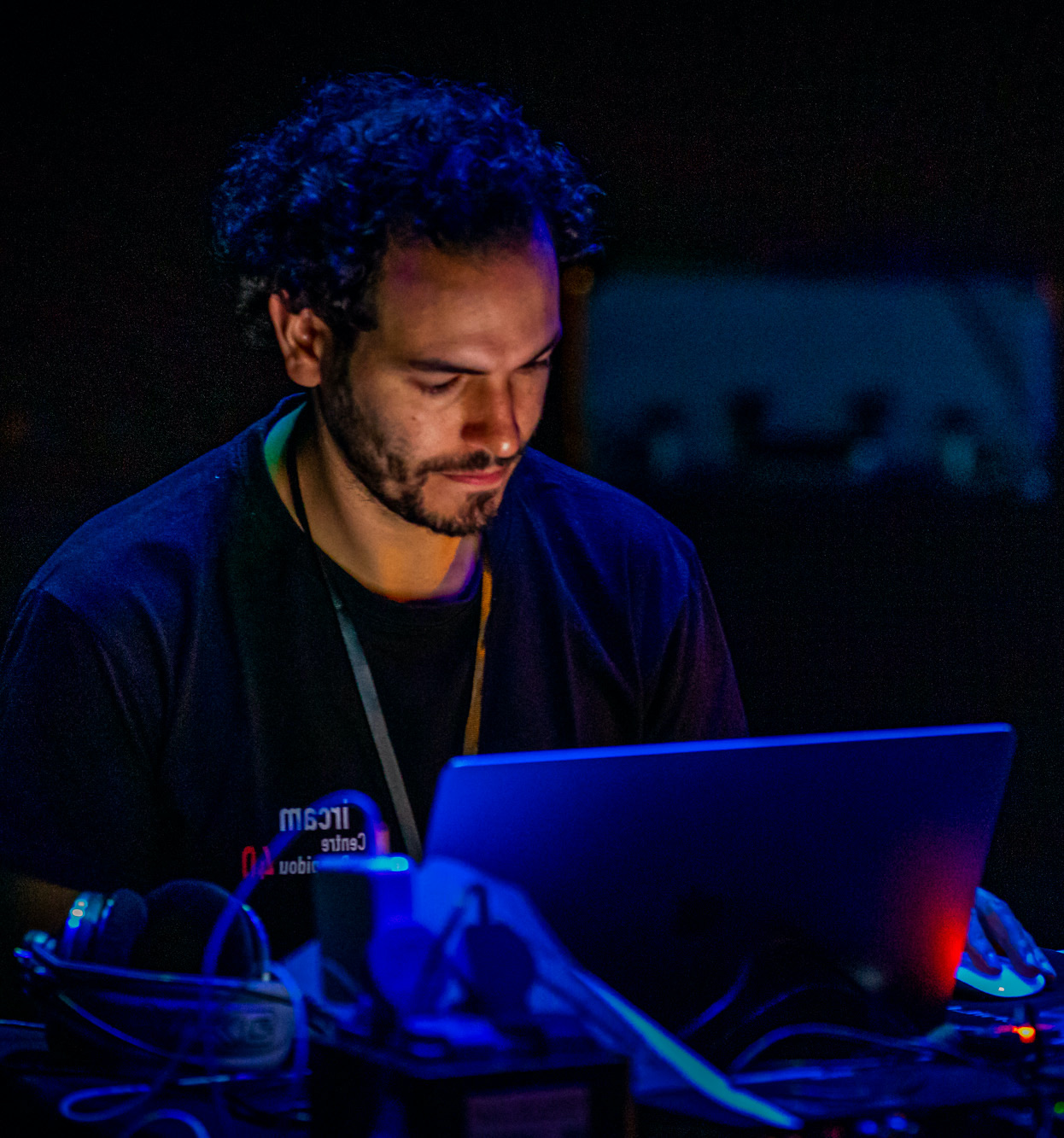 Currently working as a computer musician and software developer, Benjamin Lévy chose early to combine music and computer with engineering studies (at ENSEA graduate school of electronics) as well as cello, orchestra and composition courses at Conservatoire in Cergy-Pontoise. He went on with ATIAM master’s degree of sciences applied to music and worked as an intern in Musical Representations team of IRCAM on a software dedicated to music improvisation, OMax. Enthusiastic about this project mixing real-time processing, symbolic models and direct musical creation, he pushed further this work during almost five years and defended successfully a PhD in computer science at IRCAM around this software. Along those years, he developed connections and projects with several remarkable musicians and participated in numerous concerts as well as theater plays, sound installations, radio programs, dance performances…
Currently working as a computer musician and software developer, Benjamin Lévy chose early to combine music and computer with engineering studies (at ENSEA graduate school of electronics) as well as cello, orchestra and composition courses at Conservatoire in Cergy-Pontoise. He went on with ATIAM master’s degree of sciences applied to music and worked as an intern in Musical Representations team of IRCAM on a software dedicated to music improvisation, OMax. Enthusiastic about this project mixing real-time processing, symbolic models and direct musical creation, he pushed further this work during almost five years and defended successfully a PhD in computer science at IRCAM around this software. Along those years, he developed connections and projects with several remarkable musicians and participated in numerous concerts as well as theater plays, sound installations, radio programs, dance performances…